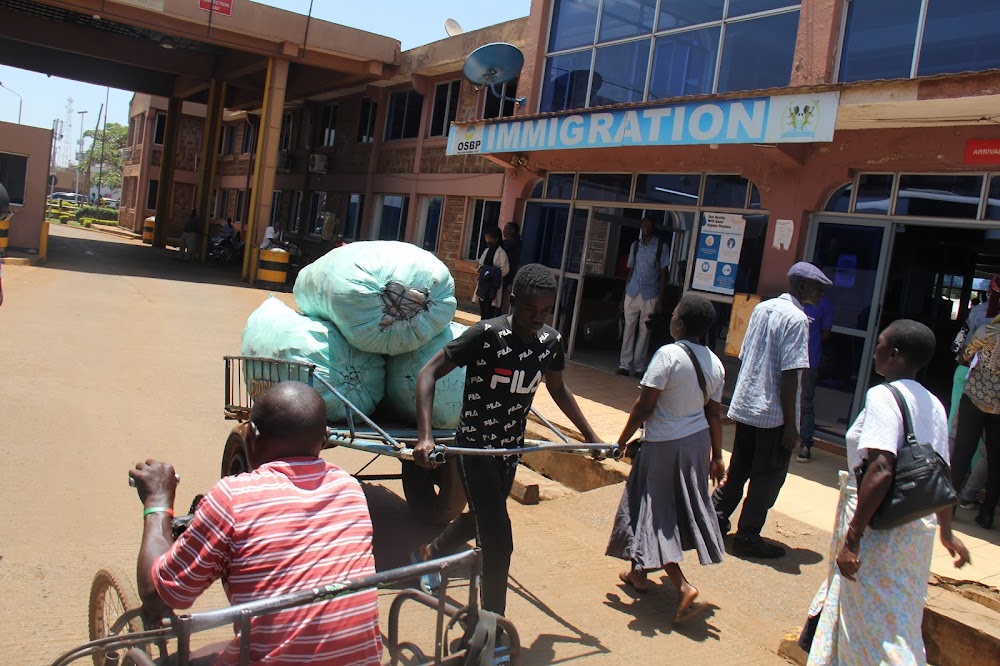Kenya is trailing South Africa and Western African economic powerhouses in the latest trade index by the Standard Bank despite moving upwards by a single unit.
According to the annual tradbility index released Wednesday, Kenya moved to position six from seven last year out of 10, trailing South Africa, Namibia, Mozambique, Nigeria and Ghana in that order.
Kenya’s Stanbic Bank Africa Trade Barometer (SB STB) scores that significantly improved in this iteration of the survey are government support of trading activities and credit terms advanced by suppliers.
In order to construct the SB ATB index rankings, seven broad thematic categories of data are collected from both primary and secondary data sources.
These thematic categories are trade openness, access to finance, macroeconomic stability, infrastructure, foreign trade, governance and economy and traders’ financial behaviour.
The SB ATB focuses on 10 countries: Angola, Ghana, Kenya, Mozambique, Namibia, Nigeria, South Africa, Tanzania, Uganda and Zambia.
The SB STB scores and ranking by country are the averages of all the data collected only from the primary research surveys conducted with over 2,500 businesses across the 10 countries of interest.
The report shows Kenya scored poorly in the trade openness to rank position 9 out of 10. This is driven by the fact that most of the businesses’ exports are sold to fellow EAC member states.
“Although Kenya is among 54 signatories to the African Continental Free Trade Agreement (AfCFTA), the country’s foreign trade is concentrated in East Africa, China and Europe,” the survey reads.
Even so, awareness of the AfCFTA amongst surveyed Kenyan businesses has significantly improved, increasing to 43 per cent in May 2023 from 15 per cent in September 2022.
This result suggests that the recent introduction of Kenya’s National AfCFTA Implementation Strategy, aimed at expediting the implementation of the AfCFTA, may help in realising the desired benefits.
”The primary research findings suggest that the burden of some of the traditional barriers on Kenyan businesses to trade with the rest of Africa may be declining”.
For example, the percentage of firms reporting trade with the rest of Africa to be easy grew significantly from 17 per cent in September 2022 to 31 per cent in this iteration of the survey.
This change was particularly driven by a significant increase in the percentage of businesses reporting that there are easy trading procedures and lower trading taxes
Business confidence among surveyed Kenyan businesses is generally neutral and consistent with the average of the other nine markets in the SB ATB
The country recorded a business confidence score of 55, relatively consistent with the average of all 10 SB ATB markets of 58.
As such, Kenya is ranked sixth in terms of business confidence—unchanged from September 2022.
Kenya’s overall macroeconomic conditions are average relative to the other countries in the Stanbic Bank Africa Trade Barometer.
As such, Kenya’s macroeconomic conditions have a moderate impact on her overall tradability attractiveness.
On the other hand, relatively high inflation, and the depreciation of the Kenyan Shilling, resulting from, among other factors, the high inflationary and interest rate environment globally, have a negative impact on the country’s tradability attractiveness.
This saw the country’s microeconomic stability index remain unchanged at position six in the region.
Over the past three surveys, the perception of the Government’s role in supporting cross-border trade amongst surveyed businesses in Kenya has been on an upward trajectory, improving from a score of 46 to 57
That said, surveyed businesses indicated that the state should support their activities by reducing business taxes and lowering customs duties.
In addition, improving the local availability of the US dollar may be an important Government initiative to improve the enabling environment for cross-border transactions—particularly given the strain that recent shortages have put on Kenyan businesses.
The shilling is currently trading 150 units against the greenback, having depreciated almost 23 per cent in the past 12 months.
“Whilst most surveyed businesses in Kenya have a neutral perspective on the prospects of the economy, the majority (74 per cent) expect their revenue to increase over the next year, reflecting the waning effects of the Covid-19 pandemic on the operations of businesses,” the survey says.
The perception of infrastructure among Kenyan businesses is high relative to the 9 other markets in the SB ATB.
Particularly, Kenya’s transport infrastructure is generally well perceived by businesses—with a quality of transport infrastructure score of 53 relative to the average of SB ATB markets of 46
However, similar to the results in previous surveys, the state of the power supply was identified by Kenyan businesses as the largest obstacle constraining their operations




